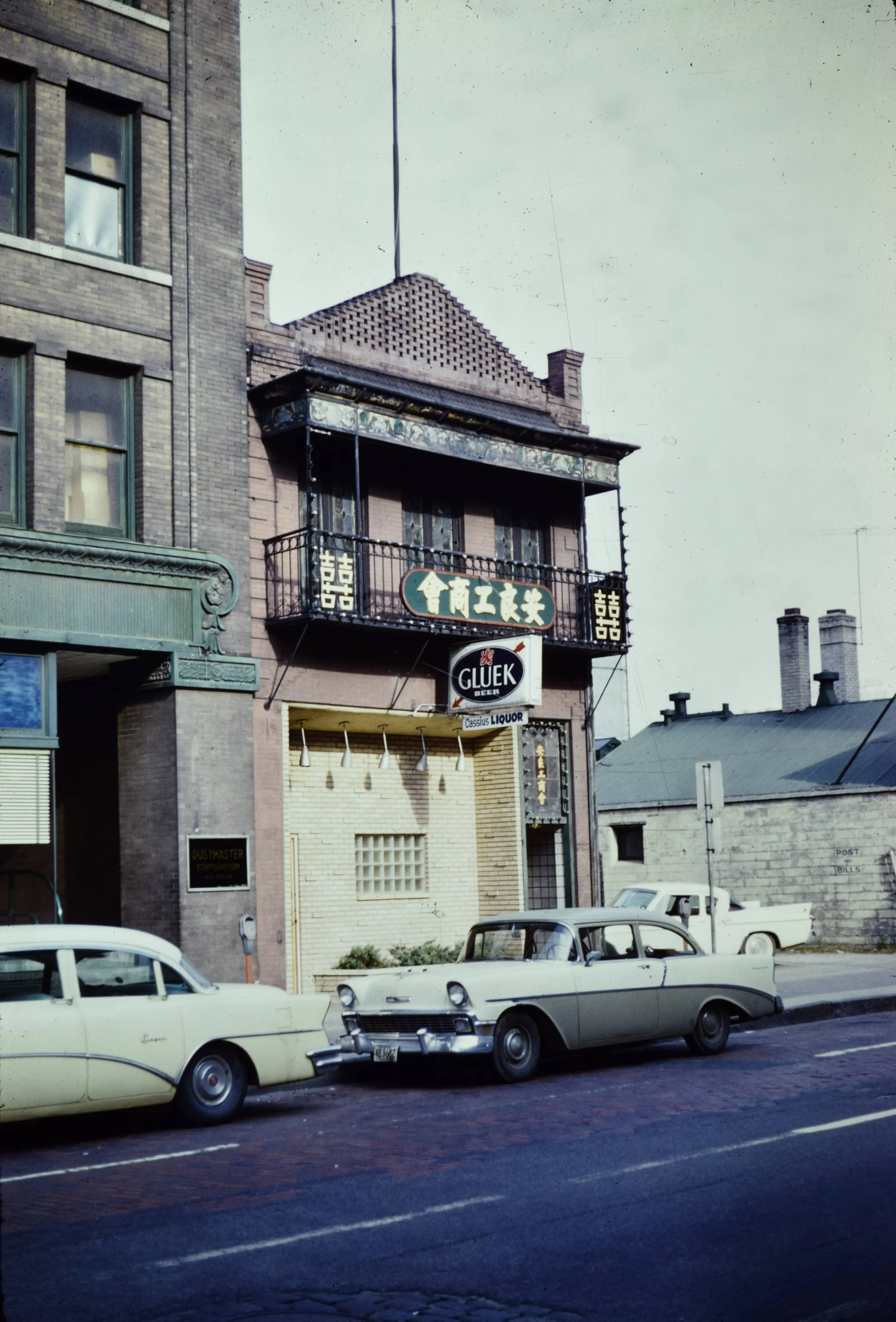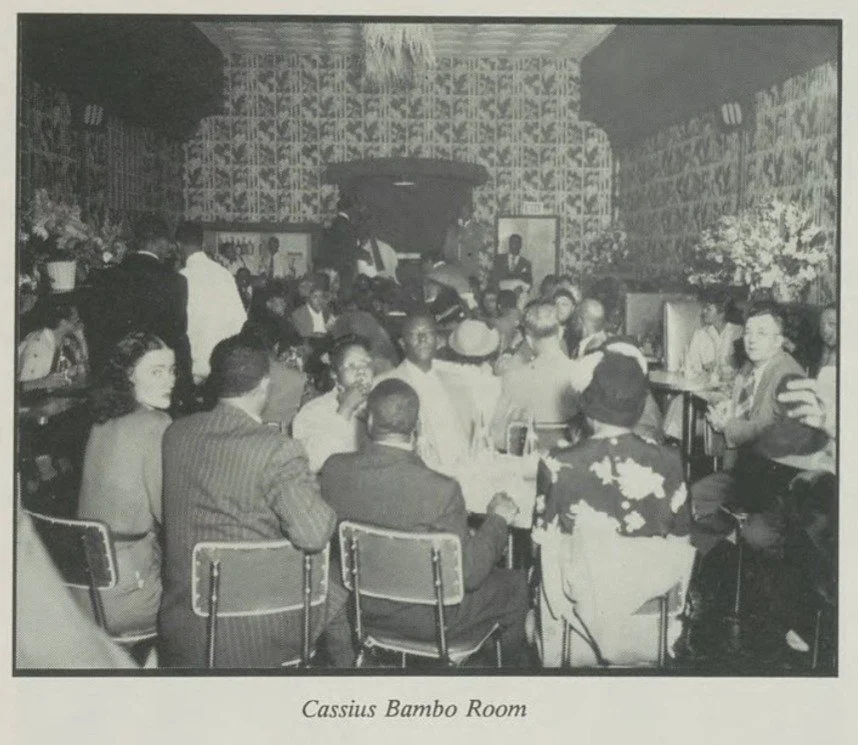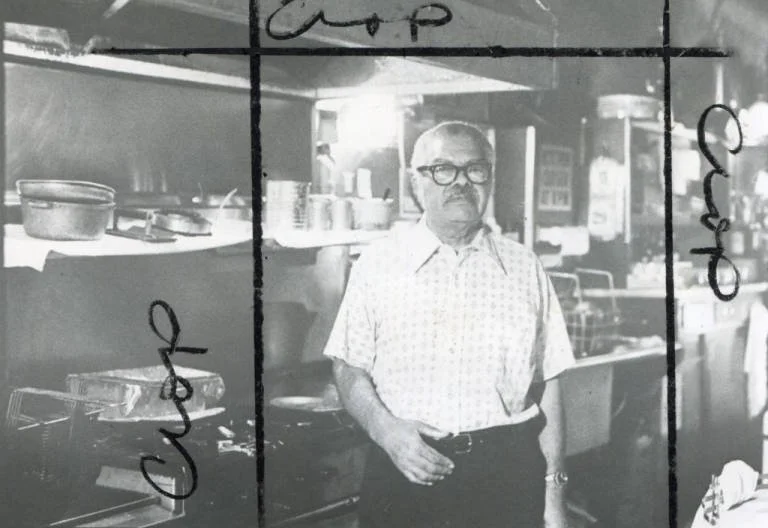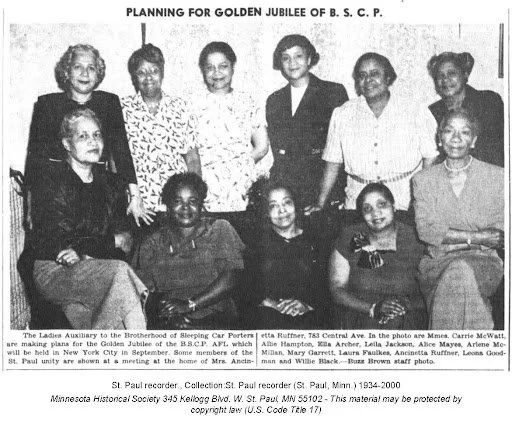Cassius Bar and Café
Dates of operation: 1946-1980
Dates Listed in Green Book: 1948-1956
It was a pivotal moment
when Anthony Brutus Cassius (1907-83) opened Dreamland Cafe and Tavern in Southside in 1939, but it was “monumental” when the doors of Cassius Bar and Cafe in downtown Minneapolis swung open in 1946.
“Cassius Smile of Victory” taken after Cassius received his liquor license, photo by John F. Glanton, courtesy of Hennepin County Library
Cassius Bar and On Leong, 1960, photo courtesy of the City of Minneapolis Collection, Hennepin County Library
Cassius Bar back entrance, 1979, photo courtesy of the City of Minneapolis Collection, Hennepin County Library
“In its early history, Cassius’ bar was known as a place where whites and blacks mingled in elegant surroundings, dressed in tuxedos and cocktail dresses.”
Cassius continued to break barriers when he sought to open a full bar at the 3rd St location. When his first application for a liquor license was denied, a city alderman told him that “black people should only be licensed for barbecues, shoeshine parlors and barbershops.” Cassius fought for two years to obtain his license, eventually becoming the first African American in Minneapolis to do so. He also received a $10,000 loan for the Cassius Club, a milestone accomplishment for a Black business owner at the time. The successes brought the addition of a jazz venue called the Bamboo Room in 1949, which regularly booked local musicians and performers.
Bamboo Room at Cassius Bar, photo courtesy of the Rondo Center of Diverse Expressions
timeline
Addresses:
Dreamland Cafe and Tavern
1) 3753 4th Avenue South
Cassius Bar and Cafe
2) 207 3rd St S*
3) 318 3rd St S, Minneapolis, MN (shown on map)
*Cassius Bar and Cafe was listed in the Green Book as “Bells Café”
A.B. Cassius and his wife Florence ran the popular Dreamland restaurant on 38th St and 4th Ave for over a decade in the predominantly Black neighborhood. There they served barbecue, fried chicken, beer, soft drinks, and a rompin’ time to residents of the neighborhood, many of whom were not welcomed at upscale places in downtown. Though a migrant from Oklahoma, Cassius was already well-known around the city for his activism in local labor movements and the NAACP. He had already proven himself as a champion of the community, yet his venture into the restaurant business provided a new way to serve folks and stay up to date on their busy lives.
The success of Dreamland Cafe led Cassius to push beyond the confines of his segregated neighborhood. What would it be like if Black people had a place to go and socialize in well-to-do downtown Minneapolis? In 1946 on 207 3rd St, the Cassius Bar and Cafe was born.
One of the first businesses of its kind in downtown, Cassius Bar and Cafe welcomed everyone, especially Black patrons who faced discrimination and hostility elsewhere. It was a classy establishment with the music and atmosphere of Harlem or New Orleans.
“I mean it was a monumental thing when Mr. Cassius got a bar downtown Minneapolis. I mean that was just unbelievable.”
cassius’ oral histories
Mr. Anthony Scott explaining how monumental it was for Cassius to get the downtown bar and explaining the social ritual of going to the Nacirema Club on Sunday afternoons (Cassius was president)
Cassius describing the mix of Black and white patrons at his bar and how he required everyone to be respectful of each other
Patrons at Cassius Bar. Photo by John F. Glanton, courtesy of Hennepin County Library and the children of John Glanton
CASSIUS BAR & CAFE
Explore the other Historic sites
SERVILLE HOTEL
JIM’S
PLACE
WILSON VILLA
G & G
BAR-B-Q
PHYLLIS WHEATLEY HOUSE










